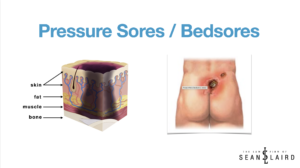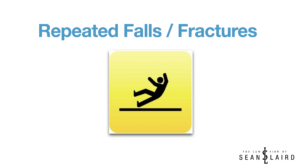Infections in Nursing Homes Often a Sign of Elder Neglect.
Infections in nursing homes spread rapidly because residents live in a confined setting and receive food and health care services from the same sources. Detecting untreated infections is essential because this form of nursing home neglect is a major cause of death in senior care facilities.
How to Detect Infections in Nursing Homes
Infections in nursing homes kill up to 380,000 seniors each year, according to the Centers for Disease Control and Prevention. Untreated infections often spread because staff members don’t recognize infection symptoms. To prevent this type of nursing home neglect, familiarize yourself with the signs of common infections. By detecting untreated infections in residential care facilities, you can improve the quality of life for an elderly loved one.
Urinary tract infections are the most common. Symptoms of untreated urinary tract infections can include fever, pain around the bladder, increased frequency of urination and a change in how the urine smells or looks. In senior residential care, another sign of urinary tract infection is deterioration in a resident’s mental state. These infections often occur in elderly people who need a catheter to urinate.
Common infections in nursing homes also include gastroenteritis. In senior residential care, this infection can lead to severe – and deadly – complications. Symptoms of gastroenteritis in elderly people ranges from diarrhea and vomiting to cramps and fever. In residential care facilities, infectious gastroenteritis spreads rapidly and is difficult to eradicate.
Gastrointestinal infections in nursing homes are caused by a variety of bacteria and viruses, including the highly contagious norovirus. In senior residential care facilities, staff and residents often contract this virus by interacting with someone who’s infected or by touching a contaminated object. Gastrointestinal infections in elderly people are hard to prevent, but certain staff procedures such as frequent hand washing can help. As part of detecting senior neglect, also make sure caregivers disinfect soiled areas and properly dispose of waste.
Recognizing Infections in Nursing Homes
Staph infections in nursing homes may easily turn deadly, according to the Mayo Clinic. With untreated infections, bacteria can enter parts of the body including the bloodstream, bones or lungs. In senior residential care, staph infections often start as a bump that resembles an insect bite and develops into a painful boil. These staph infections in elderly people are often resistant to antibiotics, so doctors may use alternative treatments such as draining the abscess.
Dangerous infections in nursing homes also include influenza. In senior residential care, flu spreads rapidly and seniors with chronic diseases are especially susceptible. Flu is common in residential care facilities even when residents and staff members have been vaccinated. To detect flu in elderly people, look for symptoms, including fever, aching muscles, cough, sore throat and/or headache.
Flu and other untreated infections quickly become serious in nursing homes. To avoid nursing home neglect, residents with symptoms should be tested for the flu and receive antiviral treatment if necessary. In senior residential care, it’s important to separate infected residents from healthy ones. To prevent spread of flu in elderly people, staff members should take precautions such as wearing facemasks and washing hands in between contact with residents.
When it comes to infections in nursing homes, pneumonia is the second most common after urinary tract infections. Among untreated infections, pneumonia is also a leading cause of death in residential care facilities. Infection symptoms can include fever, chills, coughing, chest pain and shortness of breath. In senior residential care, these symptoms may be subtle – to avoid nursing home neglect, staff members must learn how to identify them.





Comments are closed.